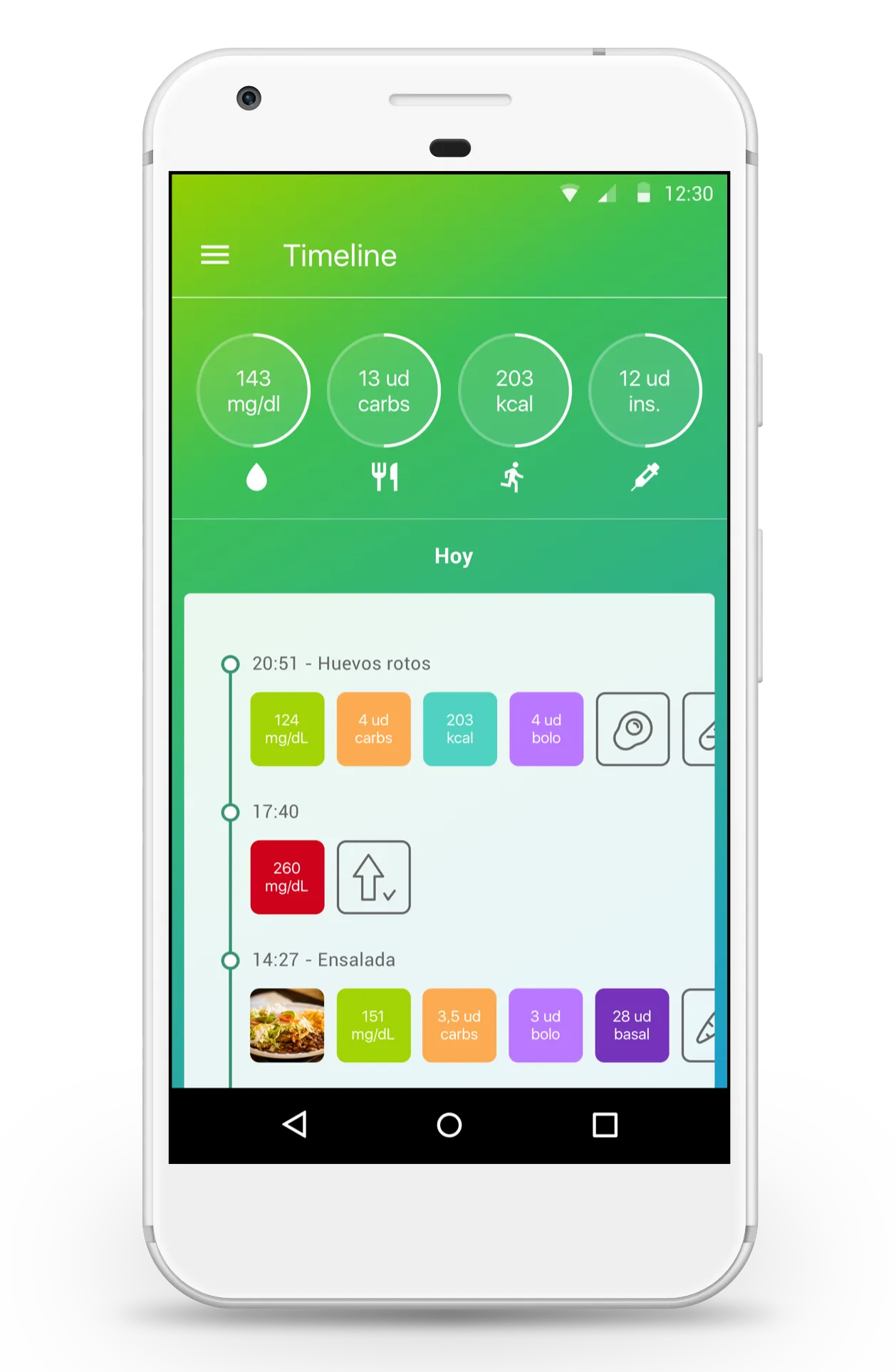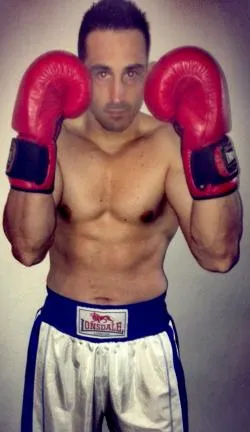A few days after the official launch of the Gluquo app, Channel Diabetes has had the opportunity to speak with Gustavo Ranera, CEO and founder of Quo Health Technology company that has developed this new app, and person with type 1 diabetes for 3 years.Its sensitivity towards the disease is embodied in this new app for the mobile that aims to collect data on diabetes to facilitate the lives of people with diabetes.
Question: Gustavo What is gluquo?
Answer: Gluquo is the assistant for our day to day that we have been looking for so long looking for diabetics
Q: What differentiates Gluquo from the rest of the apps in the market?
A: Many things.If we speak in general terms, it is a more attractive, intuitive and agile app that most of those in the market, which makes data entry easily and quickly.If we talk about functionalities, specifically we find things like our restaurant history, the reuse of old entries or the automation of labels that we cannot find in others.
Q: As creator of the app, and person with diabetes, what is the main usefulness of this new app?
A: It is important to understand that Gluquo is not a simple diary of glycemia.We do not want to stay in the data collection, if not in their analysis to provide great value to our day to day as diabetics.We want to demonstrate to diabetics that the effort they make by writing down and collecting all these data really serves something.Should I eat/dinner in such a restaurant?Is eating more or less affecting my diabetes?What sport is the one that suits me the most?Was it objectively better with ancient insulin or with the new one?These are questions that any diabetic has been done at some point and that Gluquo will help answer as we get more and more data.
Q: Can the app receive data from glucometers or sensors?
A: We are already compatible with Apple Health and Google Fit so any sensor that turns data in these two systems is compatible with us.The exercise data, for example, we take them automatically and the only thing we ask the user is that it confirms that it is effectively a training session.In the case of glycemia, with Apple Health we have no problem.If you have a Dexcom sensor, we take the glycemia and automatically record them in your history.We want to be directly compatible with all continuous glucose monitors in the market, so we will work very hard to close agreements with their respective companies.
Q: How does the app manage the relationship between the person with diabetes and their health professional?
A: We are talking about an app that encourages the patient to collect all possible data and that also helps us facilitating better control of our most important variables;Something that our endocrine will always thank.In addition, in our premium subscription we have the generation of reports especially conceived so that our endocrine or nurse can see as much data in the shortest possible time.In the coming months we will work on the development of a platform in order to connect more than ever to patients and health professionals.
Q: When and how does the idea of launching an app arise to manage diabetes?
A: The idea arises when they diagnose me with type 1 diabetes in March 2014 and give me a paper script in which to write down all the information related to my diabetes.I thought, "it cannot be that, carrying practically a computer in my pocket, this is the best solution."Three years later, with enough experience in diabetes behind my back, I decided to mount Quo Health and, thanks to the incredible team we have, now Gluquo is already a reality.Q: What are your short and long term goals?
A: In the short term, we want to change the life of diabetics for better.Technology is very close to facilitating life as no drug has not done so far, and see that these have already improved it a lot.In the long term, we want to do the same, but for many more diseases, we want to have a positive impact on health helping to make it really preventive and not reactive.
Q: What should a person do with diabetes to try gluquo?
A: We are officially in both markets, both Android and iOS.We can say that we already have a very stable app and with the vast majority of functions available.It is not a finished app, but it is that it is, it is about living products, and more in something as important as health, specifically diabetes.We will not stop updating and improving it.
Q: You will coincide with me that there are many health apps, and many apps specifically in diabetes Is there a risk of saturation, what do you think?
A: That's right, today there is not only an app for everything, but there are thousands of apps for everything.It is a tremendously competitive market, all the people with whom you talk about the subject, and that they do not dedicate themselves to it, they seem to think that it is easy to make a living with apps, that everyone who develops one, sooner or later will be rich;But nothing is further from reality, it is a very complicated market.Now, is there saturation?In numerical terms without a doubt, but blessed saturation for users.We have more offer than in any other market, but I also believe that there is a long way to go, which we have not yet achieved or scratch the surface of what you can do for us and more when we think of health apps.The Ehealth will change the way we interact and understand health, but for this to be achieved, it has to do it by the apps, the technological branch closest to the end user, which is for and for whom we work.
Q: What relationship do you have with diabetes?
A: Every day we get better, I don't get melinterpretos, it would be wonderful not to have to get along with diabetes, but I have never conceived diabetes as an impediment at all.When they told me that it was diabetic, the first thing I thought was that there were very worse things in life and that on topThey do not have all the type 1 diabetics. But returning to the subject, not only every day we get better, but every day I am more convinced that it is a force and a motivation in my life.To give you an example, I had always wanted to undertake in something that had a positive impact on society, but it was not clear, until that March 2014 when the endocrine told me that it was diabetic type 1.




